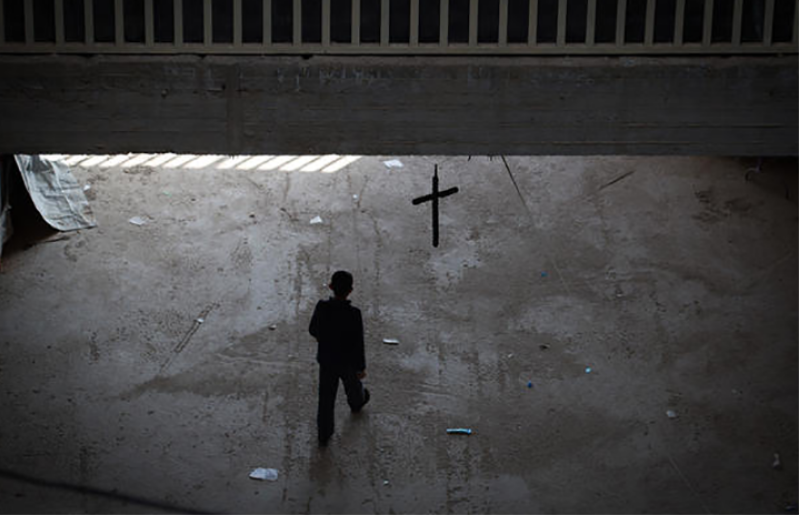
The plight of Christians in Iraq was the top headline story of iconic American journalism magazine "60 Minutes." The news segment aired Sunday night on CBS.
In a report compiled by correspondent Lara Logan and producers Max McClellan, Jeff Newton and Richard Butler, "60 Minutes" reported that Christians in Iraq, who live in a part of that country known as the Nineveh Plains, trace their history to the first century apostles. Although Christians in that region have survived through centuries of persecution, Father Joseph Ibrahim of the Monastery of St. Matthew indicated to Logan that Christians, along with their culture, could be wiped out by the terror group known as ISIS.
"We don't know exactly, but we are expecting the worse," Ibrahim said when asked what scares him about ISIS.
Logan reported that St. Matthew's is located six miles just outside of Mosul, a large Iraqi city occupied by ISIS. Nicodemus Sharaf, the Archbishop of the Syriac Orthodox Church in Mosul, managed to escape from that city; he now lives as a refugee in Kurdish-controlled Erbil.
"I didn't have any time to take anything," Sharaf said. "I was told I had five minutes to go. Just I took five books that are very old."
Sharaf lamented that he was unable to save other Christian relics, which include manuscripts written in Aramaic, the language Jesus spoke.
"I think they burn all the books," Sharaf said, crying on camera. "We have books from the first century of the Christianity."
Logan described how ISIS militants destroyed Christian symbols in an attempt to erase Christianity in Iraq; one of them included a mosque that was the burial site of the prophet Jonah, which is important to both Christians and Muslims. She also noted that ISIS marked Christian homes in Mosul, borrowing a technique used by Nazis against the Jews.
"It's the Arabic letter N - for Nasara - an early Islamic term for Christians," Logan said. "When ISIS puts it on your home, you either convert to Islam, pay an extortion tax or face the sword."
Even if Christians converted to the version of Islam promoted by ISIS, they still faced persecution from militants. According to Logan, Issah Al Qurain, who managed to escape from ISIS control with his family, became a Muslim to save his family from death; however, ISIS militants later demanded that he hand over his young daughter to them, citing their interpretation of Sharia law.
"They said to me that in Islam, the Sharia says, girls that are 10 years old should get married," Qurain said through a translator. "As soon as they left, my wife and I shut the door. We looked at each other and she started to cry and pray. We were so scared they were going to take our daughter from us."
According to Logan, more than 125,000 Christians have been forced from their homes over the last 10 months. Archbishop Bashar Warda of the Chaldean Catholic Church told the CBS News reporter that more than 60,000 refugees have become part of his congregation in Kurdistan; about 30,000 Christians lived in Erbil before the rise of ISIS.
"For me, Da'esh is a cancer. It's a disease," Warda said, referring to ISIS by its Arabic name. "Sometimes you take some hard measures, unfortunate measures to deal and to treat this cancer."
Warda argued that when the United States withdrew from Iraq back in 2011, persecution against Christians in Iraq became worse.
"It's not blaming, but that's the reality," Warda said. "This is not what you came for in 2003. The 4,000 sacrifices of the American soldiers [were] not meant to come to this day."
Despite all the persecution of Christians hurled by ISIS, Sharaf's Christian faith still remained unbroken. In addition, Logan reported that Iraq's Christians have hastily taken up arms against ISIS.
"They take everything from us, but they cannot take the God from our hearts, they cannot," Sharaf said.






